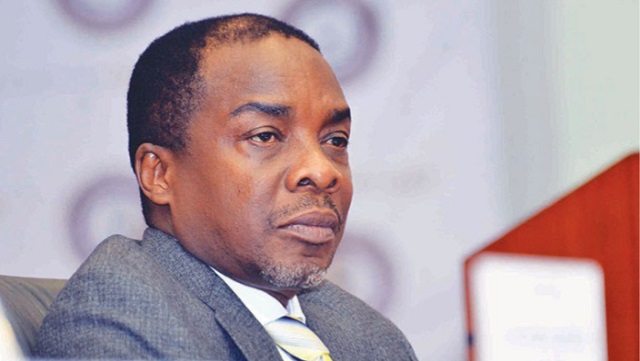
Why opposition shouldn’t expect President to drop winning strategy
Kampala, Uganda | AGATHER ATUHAIRE | Since Attorney General William Byaruhanga tabled before parliament the government proposed electoral reforms on July 26, attention has been on how opposition parties will react to them.
Presentation of the proposed reforms is, on paper, a win for the opposition because President Yoweri Museveni’s government appeared reluctant. It only acted under pressure after two prominent law scholars; Prof Frederick Ssempebwa and Prof Frederick Jjuuko went back to the Supreme Court accusing government of refusing to enforce the orders given by the Court in 2016.
The two professors and one other petitioner argued that the government was in contempt of court for failing or refusing to enact reforms that the Court had guided should be in place two years after the passing of the Judgment.
At the hearing, the Attorney General’s office, represented by Deputy Attorney General Mwesigwa Rukutana, responded that the government had been consulting and was ready to move when the application came up.
Rukutana said his office followed up the Supreme Court’s recommendation number 1 and 3 which relate to the filing and determination of election petitions and the holding of fresh elections where a presidential election is annulled, by participating in the Constitutional Amendment Bill that was introduced by Igara West MP Raphael Magyezi in 2017. It is the same amendment that abolished Presidential age limit from the constitution.
The Court agreed with the given explanations and did not find the Attorney General in contempt of Court saying that the Attorney General had made efforts to follow up on the recommendations.
“His explanations on the delay were not farfetched in light of the explanation given. Indeed the explanation shows steps that were taken to effect the court orders, albeit slowly,” the court said in its ruling.
The Court ordered him to report progress in three months if the objective of the court is to be achieved.
“The objective of the court’s orders was to foster fair play, democracy, law and order in the politics of this country. The court set a timeline because the said laws should be passed and effected in time for all stakeholders to implement and comply in the subsequent elections.”
Reforms or maneuvers?
The government has since tabled before parliament proposed reforms on the laws on political parties and organisations, the Electoral Commission, presidential and parliamentary elections and local governments. The proposals now before parliament’s Legal and Parliamentary Affairs Committee should return to the House for debate within 45 days.
The introduced reforms have been met with the usual criticism. Those opposing them say they ignore required reforms and instead aim to disadvantage the opposition further by proposing amendments that many say are targeting certain individuals in the opposition.
Leading opposition lawyer and ideologue Wandera Ogalo says what the government tabled are not reforms but continued maneuvers to keep Museveni in power.
“What reforms? There are no reforms. A reform means an overhaul. Reforms normally depart significantly from the status quo. What you call reforms are just continued maneuvers to achieve the only thing that matters to Museveni-retaining power,” he told The Independent.
He says that the proposal on the independents contravenes freedom of association and that the proposal on funding targets Museveni’s latest challenger, Robert Kyagulanyi commonly known as Bobi Wine of People Power.
“What they are doing is an opportunistic strategy to retain power. I don’t see any reforms. The proposal on funding is redundant because the political parties are already obliged by the law to file their audited accounts every year. The provision is entirely about Bobi Wine. They fear that he will get funds from foreign sources. They will conveniently say that the funds are from terrorist organisations. Because Museveni accesses the treasury and raids it at will, he wants to make it even harder for other contenders to access any financial support.”
The Citizens Coalition for Electoral Democracy (CCEDU) coordinator Crisoin Kaheru agrees. He says the NRM government worries that in the event that substantive reforms are adopted, they could lose their grip on power.
On the same day that the government tabled its proposals, Ndorwa East Independent MP Wilfred Niwagaba, who is the Shadow Attorney General, followed Speaker Rebecca Kadaga’s advice that a private member should introduce the reforms that the government is shying away from, and moved a motion seeking leave of parliament to introduce a private members Bill to amend the constitution and provide what he describes as “meaningful electoral reforms”.
The most contentious government proposals are on the position of people who want to stand as independents. Under the Attorney General’s proposals, these were initially required to first be discharged by their political parties. But this proposal was opposed by the MPs on the Legal and Parliamentary Affairs Committee and it was removed.
The others are the stringent proposals on campaign funding which include a requirement for a candidate to declare the source of their election funds and bars candidates from obtaining any financial or other assistance from any foreign Government, institution, body or person which or who has “demonstrated an intention to overthrow the lawfully established Government of Uganda, or to endanger the security of Uganda; or obtain any financial or other assistance from an organisation which has been declared a terrorist organisation under the Anti-Terrorism Act, 2002.”
Departing from previous tussles over electoral reforms, the government this time appears to have courted some opposition parties and the powerful donor community to back its position.
Some of the reforms the government is presenting reflect the position of the Inter-Party Organisation for Dialogue (IPOD) with the Democratic Party (DP) and the Uganda Peoples Congress (UPC) backing them. The government’s move appears to have isolated the Forum for Democratic Change (FDC).
 The Independent Uganda: You get the Truth we Pay the Price
The Independent Uganda: You get the Truth we Pay the Price



